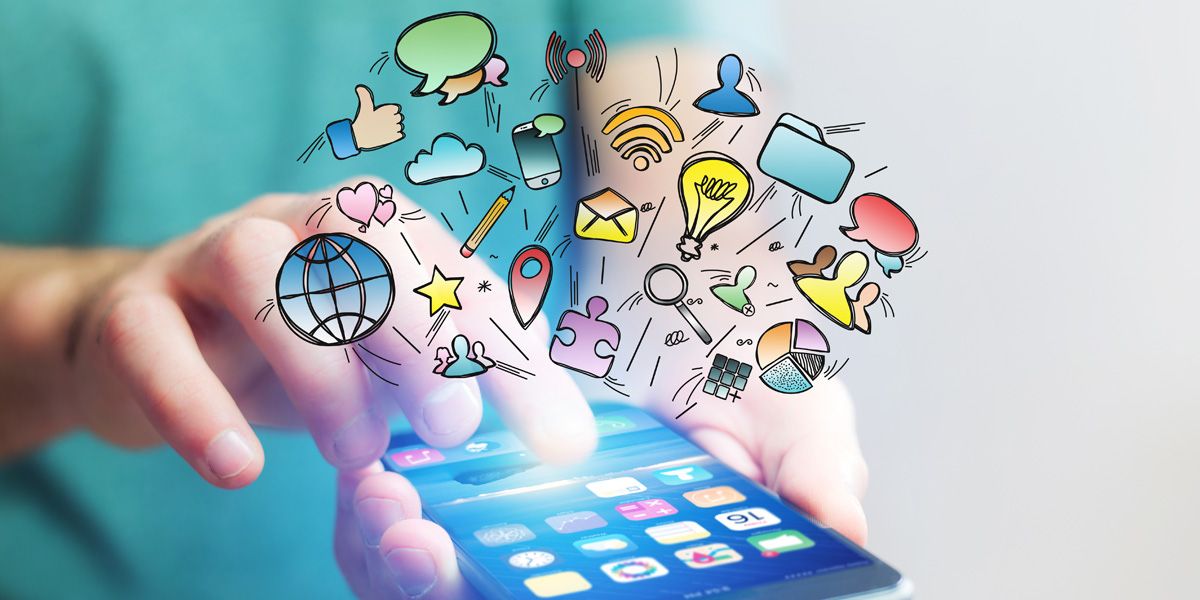Overcoming The Social Intrusion Of Smartphones
Dhiraj Mullick

Smartphones are empowering. They have interlaced practically every facet of our lives with overwhelming speed, convenience and connectivity. Dependency on smartphones has increased to such an extent that we find ourselves more involved with our phone than the meeting we are attending or even the traffic on the road. Today, when there is a smartphone in every pocket, how do we decide whether to pull it out and respond to a new text or leave it in our pocket and continue with the activity at hand?
The ‘mobile phone’ is no longer a mere talking device, providing connectivity on the move. It has transformed into a much smarter ‘avatar.’ The modern day phone allows you to send emails, eliminates the need for a camera, and replaces the morning newspaper. It doubles as an entertainment hub – allowing you to play games, listen to music, watch movies or read your favorite book. It works like a GPS tracker, enables online shopping, banking, stock trading, etc. and offers 24/7 social connectivity with just about anyone in the world. The possibilities have become endless!
While smartphones have brought about great convenience, in some ways they have also upset customary social precepts. People have started paying more attention to their Facebook status updates than greeting their next-door neighbor. Talking while driving or texting while halted at a traffic signal seem to have overtaken basic safety norms. Smartphones are also fuelling FOMO, or a ‘Fear of Missing Out’ syndrome. As a result, people are forever tweeting, texting, checking emails and updating their online status; they are so busy on social network sites that they don’t find time for the people who are around them. Etiquette experts and social analysts opine that while smartphones have provided more venues for social connectivity with people around the world, they are weakening our relationships with those right in front of us.
So how do we handle technology’s intrusive impact on our traditional social setting? Is there a need to teach smartphone manners or is it too late to establish social etiquette around its use when we have already adopted such bad habits?
As with all things, we can begin from home and start by simply developing a formal code or etiquette regarding smartphone usage. After all, somebody did teach us simple norms: knocking before entering a room, greeting people appropriately based on the time of the day, and offering a warm handshake. Some basics to make a start:
- When attending a meeting or in any formal setting, switch off your phone or put it in silent mode and keep it out of sight.
Do not check your phone or reply a text when in the middle of a conversation with someone.
- If you must attend your phone in the presence of others, excuse yourself, move a few steps away and speak quietly.
- If the conversation is of a private nature move out of the room and be brief.
- Avoid keeping the phone on the dining table unless something urgent is expected. Enjoy your meal and the company around you.
- When listening to music or watching videos in public, make sure the crowd is with you or else use earphones. Respect others’ space.
- Set conventions for going offline, like no calls after 9 pm and no work-related calls on weekends. The peace and quiet will be rejuvenating.
Essentially, it is about balance and understanding that we must set our smartphone aside for some time every day. Just like a battery, without time to recharge, human beings run out of energy. If we’re always on, we don’t have time to refresh and that restricts our capacity to think and act efficiently.
It has taken very little time for smartphones to develop the widespread use they have today. While they are giving us options to do more, they are also tempting us with the option of trying to do too much. As smartphones continue to increase our ‘social reach’, we must not allow them to reduce our ‘social skills’ which are key to enduring relationships, and provide the organic connect which we need, to resolve conflict, to share thoughts and to make and grow friendships.